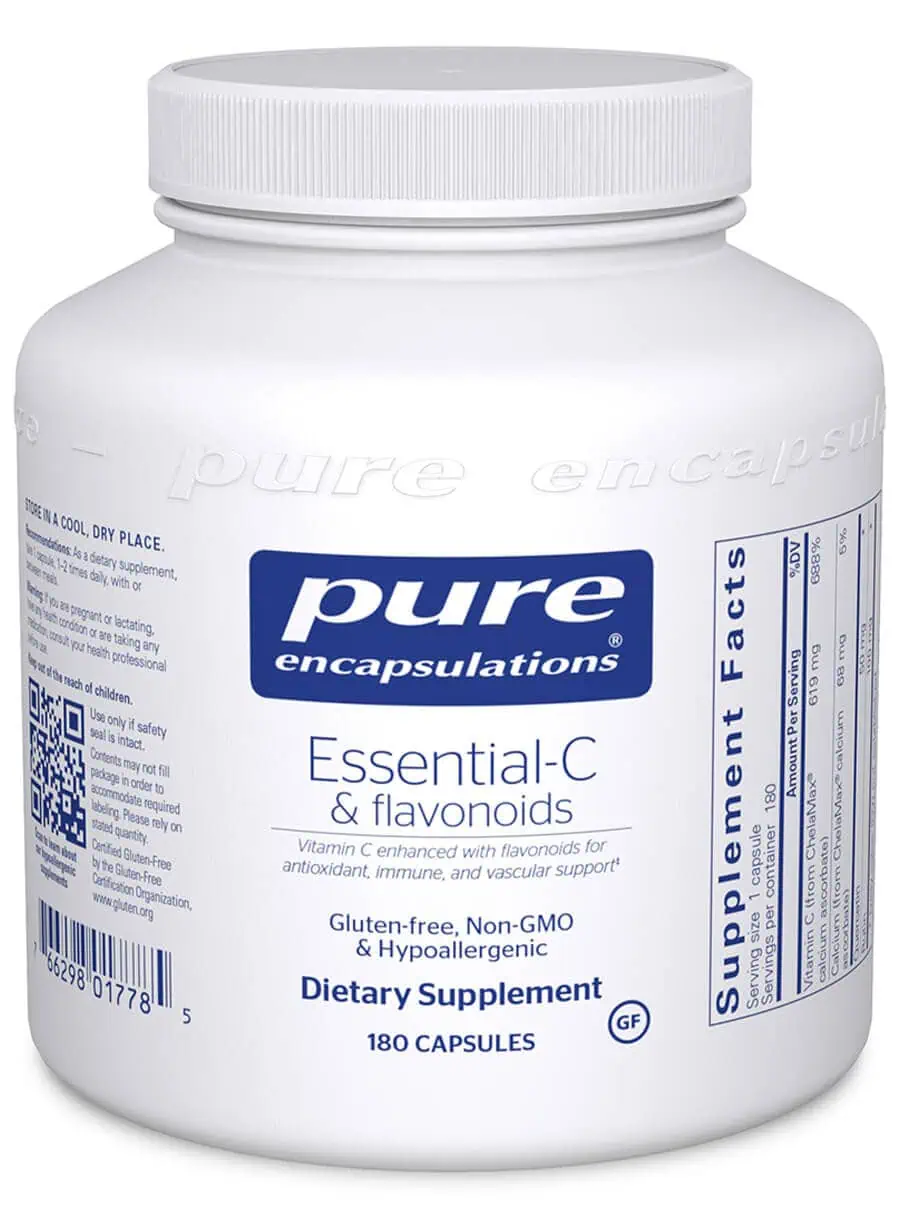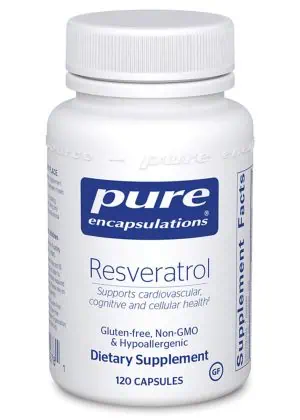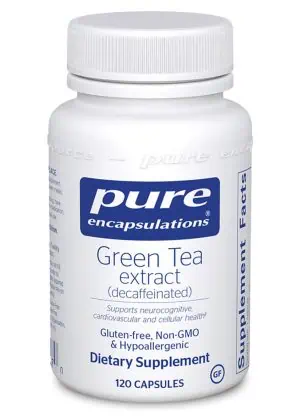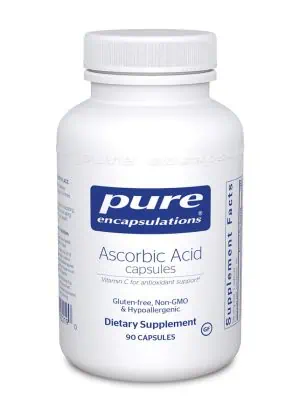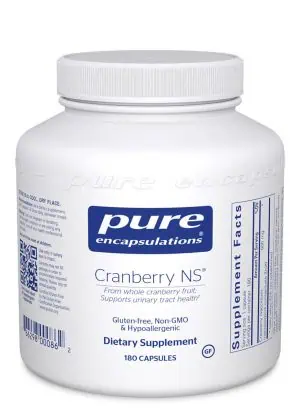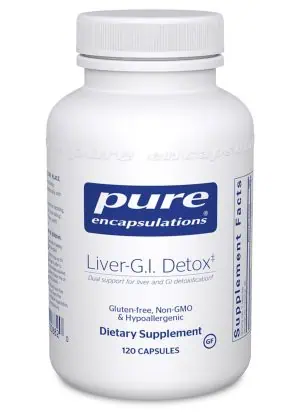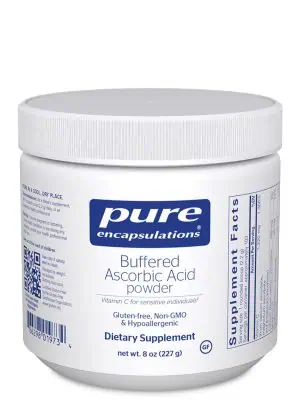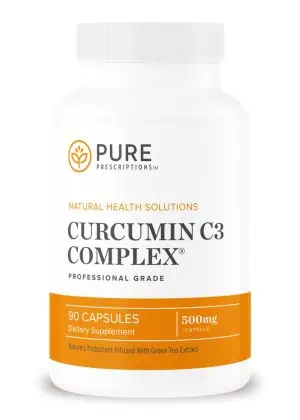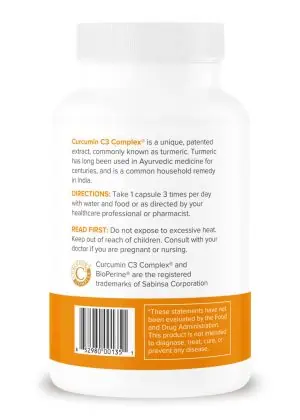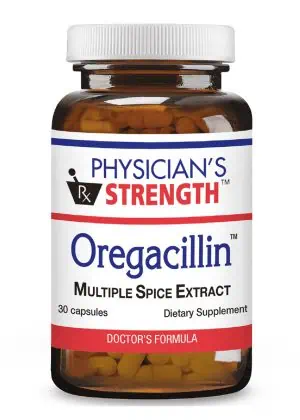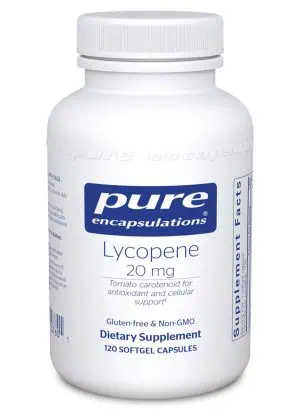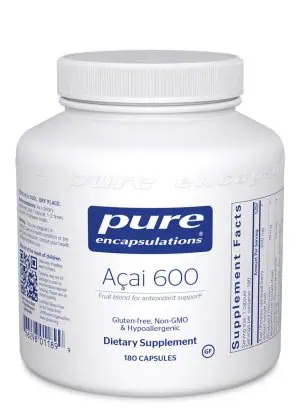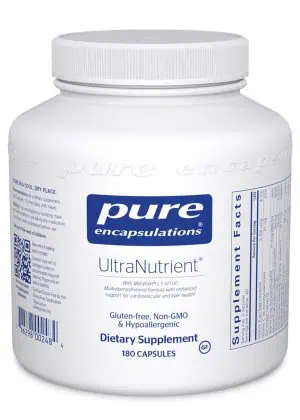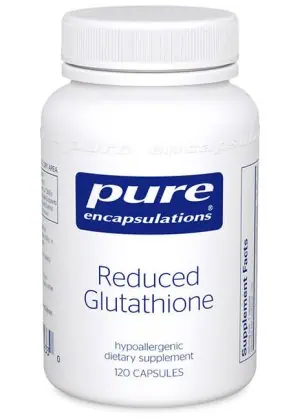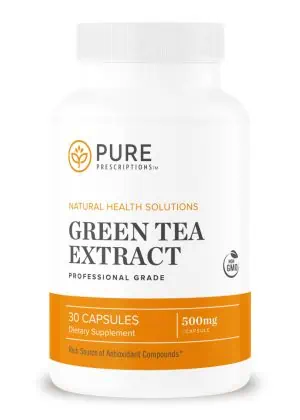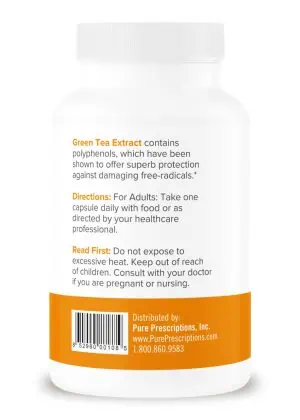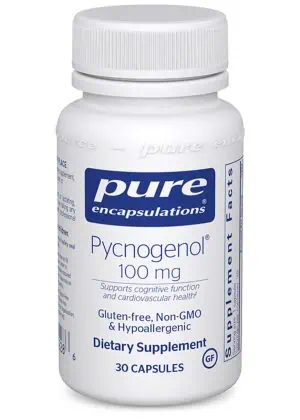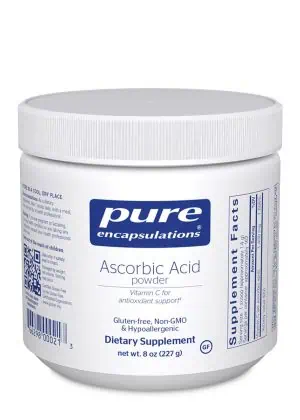Ester-C & flavonoids by Pure Encapsulations
Starting at $27.50
Starting at $27.50

Suggested Use: 1-2 capsules per day, with or between meals.
Uses For Ester-C & flavonoids Antioxidant Support:
Animal studies show increased plasma vitamin C concentration and delayed urinary excretion with administration of Ester-C & flavonoids, suggesting that it is readily absorbed and efficiently utilized. Calcium l-threonate, a metabolite of calcium ascorbate, may facilitate the transport and uptake of vitamin C, playing a key role in optimizing cellular levels. A human study involving 12 subjects indicated favorable bioavailability as well as revealing a boost in white blood cell levels. The bioflavonoids quercetin, rutin and pomegranate extract are powerful free radical scavengers that complement the roles of vitamin C. Quercetin helps maintain healthy histamine release and moderates healthy leukotriene and prostaglandin metabolism. Rutin and pomegranate extract provide important support for blood vessel integrity and healthy cell function.*
What Is The Source?
Ester-C & flavonoids mineral ascorbates are manufactured from ascorbic acid, mineral oxides and mineral carbonates. The mineral oxides and carbonates are mined domestically. The ascorbic acid is derived from corn fermentation. Quercetin and rutin are derived from Japanese pagoda tree (Sophora Japonica) flower buds and the fava danta tree respectively. Pomegranate (punica granatum l.) extract is standardized to contain 5% ellagic acid. Vitamin C (ascorbyl palmitate) is derived from corn dextrose fermentation and palm oil.
Are There Any Potential Side Effects Or Precautions?
If pregnant or lactating, consult your physician before taking this product. People with the following conditions should consult their doctor before supplementing with vitamin C: glucose-6-phosphate dehydrogenase deficiency, iron overload (hemosiderosis or hemochromatosis), history of kidney stones, or kidney failure. It has been suggested that people who form calcium oxalate kidney stones should avoid vitamin C supplements because vitamin C can convert into oxalate and increase urinary oxalate. In rare cases, quercetin may cause headaches and mild tingling of the extremities. Consult your physician for more information.
Are There Any Potential Drug Interactions? Quercetin may react with calcium channel blockers, estradiol, and immune suppressive drugs.
Product Ingredients
| Ingredients | AMT | %DV |
|---|---|---|
| calcium ascorbate blend (from from ChelaMax®) | - | - |
| providing (typical): vitamin C (from calcium ascorbate) | 619 mg. | - |
| calcium (from calcium ascorbate) | 68 mg. | - |
| quercetin | 50 mg. | - |
| rutin | 50 mg. | - |
| pomegranate (punica granatum L.) extract (whole fruit) | 50 mg. | - |
| (standardized to contain 5% ellagic acid) | 2.5 mg. | - |
Why Buy From Us?As a trusted family- and employee-owned company for over 25 years, we've shipped more than 1 million packages, empowering our customers with expert knowledge, guiding their wellness journeys, while delivering unparalleled customer service.

Welcome to Pure Prescriptions
I founded Pure Prescriptions after overcoming Cancer at age 29, a battle that taught me the power of natural supplements and inspired me to make professional-grade, doctor-only brands accessible online—pioneering the industry over 25 years ago.
Today, still a family- and employee-owned company, we've shipped over 1 million packages, empowering countless wellness journeys with science-backed, U.S.-manufactured vitamins and supplements meticulously curated for superior quality and optimal results. Our real health experts provide personalized recommendations without upsells or gimmicks—just genuine support tailored to your needs.
Not a customer yet? We'd be thrilled to earn your trust and guide you toward vibrant health.
Sincerely,
Helpful Links:
Contact Us | LIVE Chat | Vitamin Quiz
The Pure Prescriptions Difference
When you choose Pure Prescriptions, you become part of our caring community. We’re committed to enhancing your wellness with personalized service, expertly selected products, and a dedication to your health & happiness.


Related products
Get Notified When Back In Stock
Verify you are Human:
-
- Vitamin Quiz
- Deals
- Shop
- Brands
- Shop by Manufacturer Brand
- Shop by Manufacturer Brand
- About
- Login





